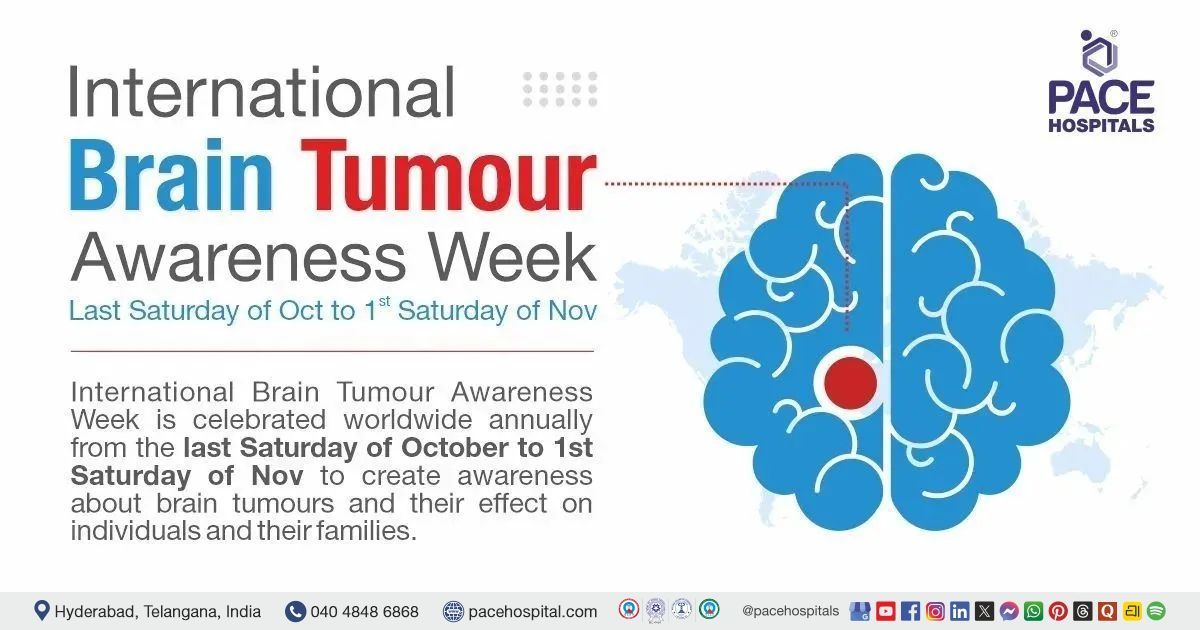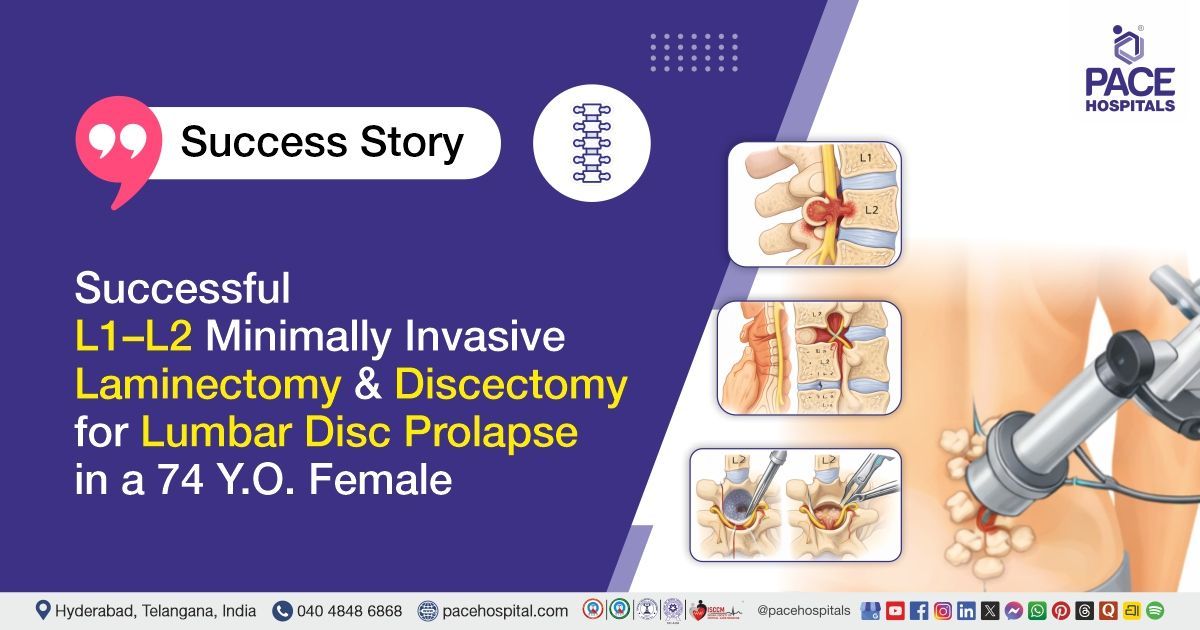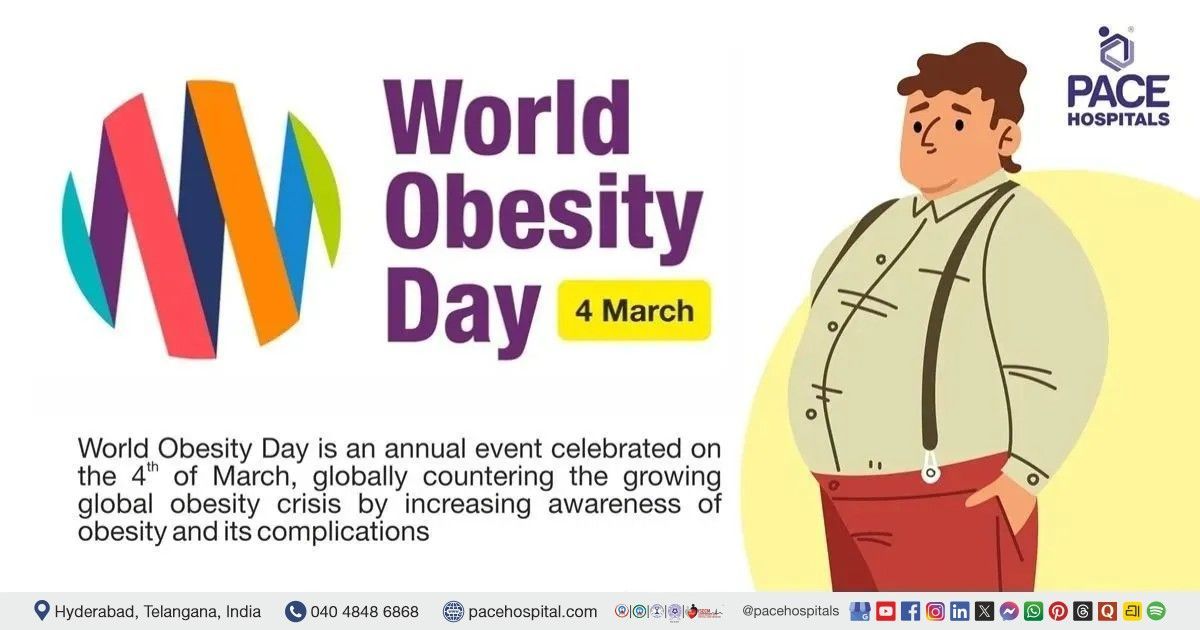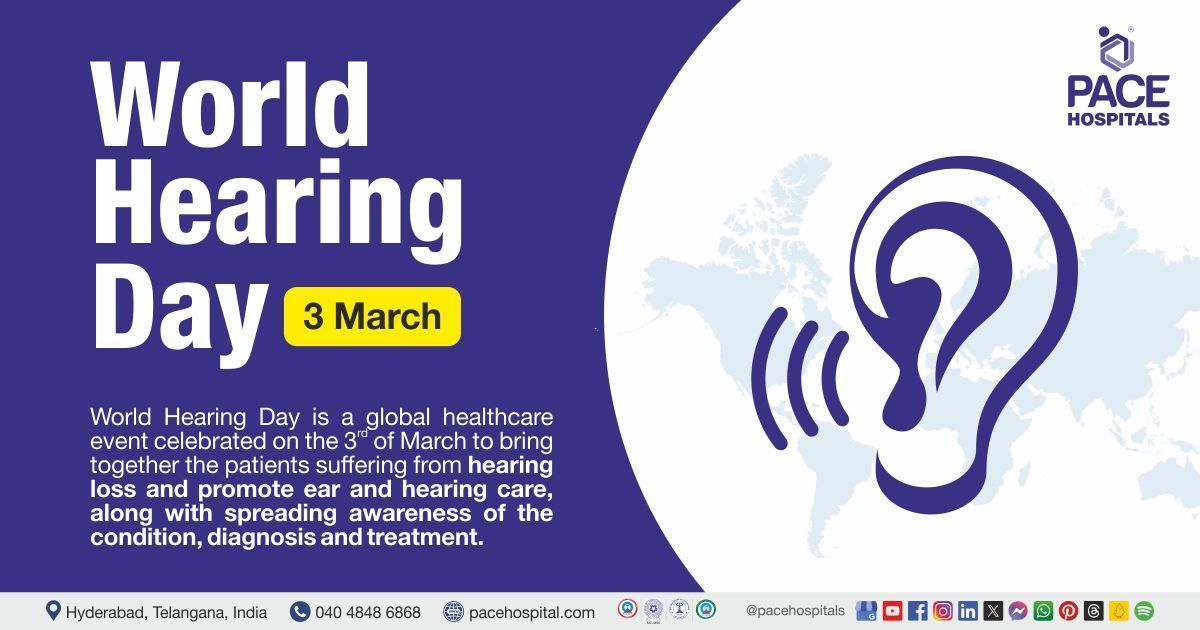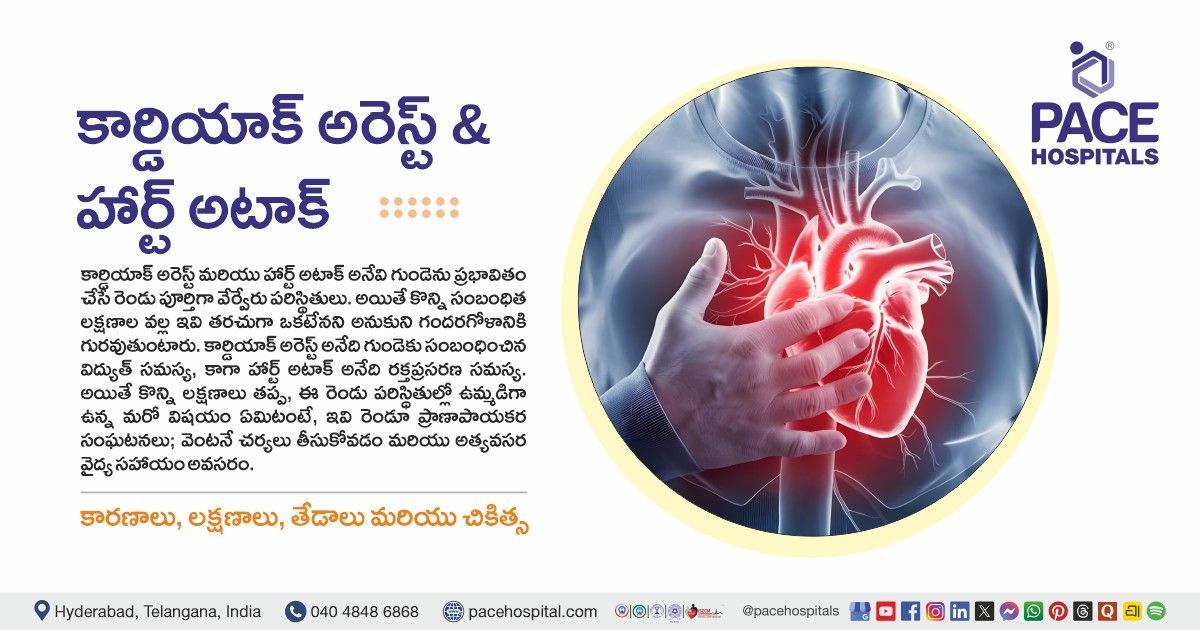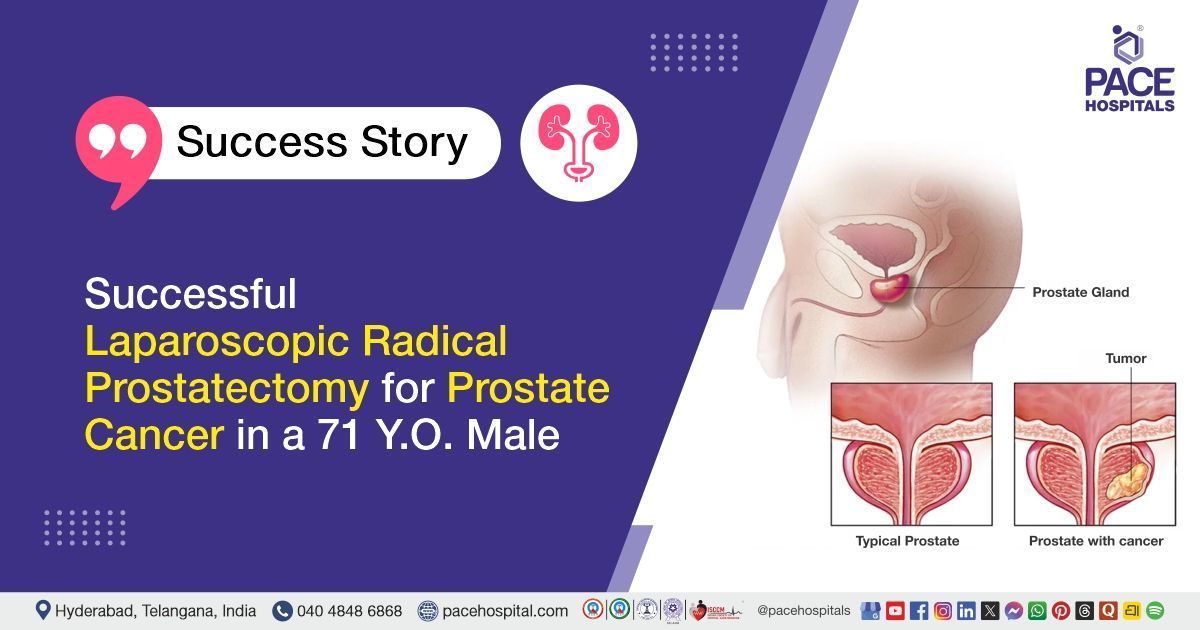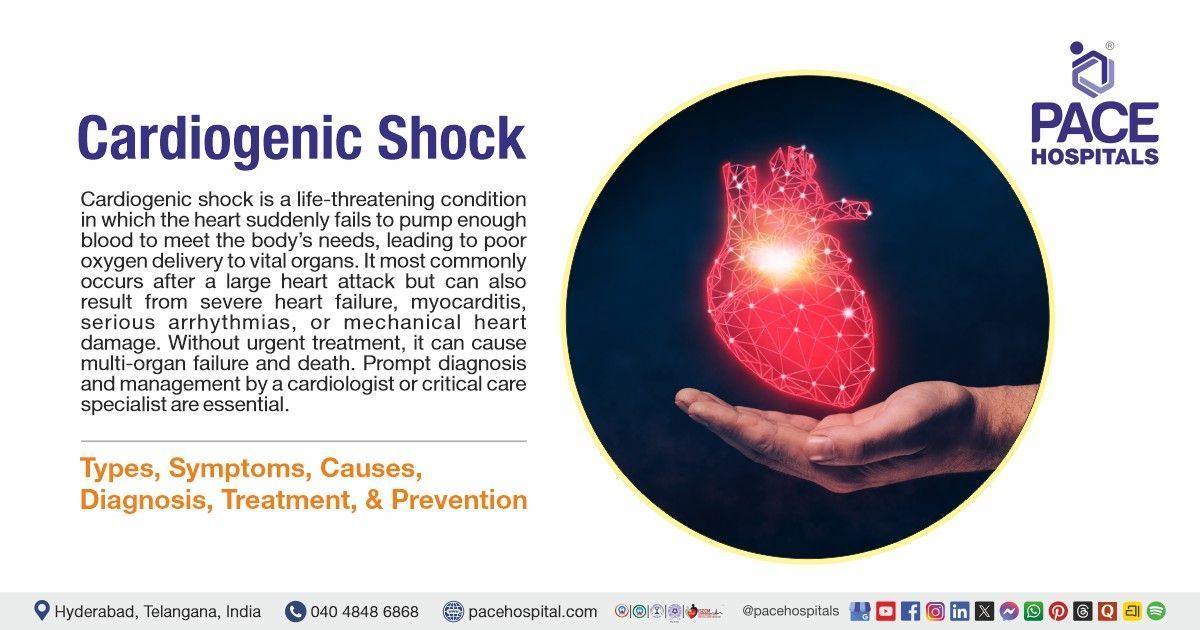International Brain Tumour Awareness Week, 25th Oct - 1st Nov 2025
PACE Hospitals
International Brain Tumour Awareness Week is celebrated worldwide annually from the last Saturday of October to 1st Saturday of November to create awareness about brain tumours and their effect on individuals and their families. This year, 2025, the International Brain Tumour Awareness Week is celebrated from 25th October to 1st November (Saturday to Saturday).
On this week, various local and international organisations come together and organise several webinars, launch educational programs and several activities to create awareness with respect to the unique challenges of a brain tumour diagnosis as well as the need for a special response and increased research efforts, which the international brain tumour community would greatly appreciate.
Importance of International Brain Tumour Awareness Week
A brain tumour is a mass of cells that has grown abnormally in or around the brain. Spinal and brain tumours are collectively called central nervous system (CNS) tumours. Brain tumours are classified as either malignant (cancerous) or benign (noncancerous). Some tumours develop rapidly, while others grow slowly. Only one-third of all brain tumours are malignant. Brain tumours, whether malignant or not, can impair brain function and health if they grow large enough to press the surrounding nerves, blood vessels, and tissue.
A person's lifetime risk of having a brain tumour is less than 1%. The annual incidence of brain and other central nervous system tumours was 15.80 per 1,00,000 women and 14.33 per 1,00,000 men. As per 2019 research paper, the annual death rate was 3.4 per 1,00,000 men and women. Brain tumours are the most prevalent solid tumour in children and the second most prevalent malignancy, accounting for 15-25% of all paediatric malignancies. Children have a different percentage of histological subtypes than adults, with gliomas (about 40%) and medulloblastomas (roughly 25%) primarily originating infratentorial and the remainder, germ cell tumours and craniopharyngiomas, occurring in the midline.
According to Global Cancer Statistics, 3,08,102 new central nervous system (CNS) and brain tumour cases were diagnosed, and 2,51,329 cancer-related deaths occurred worldwide. The International Brain Tumour Awareness Week has been established to advocate for the most significant therapies, information, support, and quality of life for brain cancer patients worldwide, giving hope to the patients and their families.
History of International Brain Tumour Awareness Week
Around 2007, the International Brain Tumour Awareness Week was established by the International Brain Tumour Alliance (IBTA) on the last Saturday of October to shed emphasis on the challenges experienced by brain tumour patients and their families and to create awareness, support, and research efforts. So since then, every year, from the last Saturday of October, the awareness week has been a beacon of hope in spreading awareness.
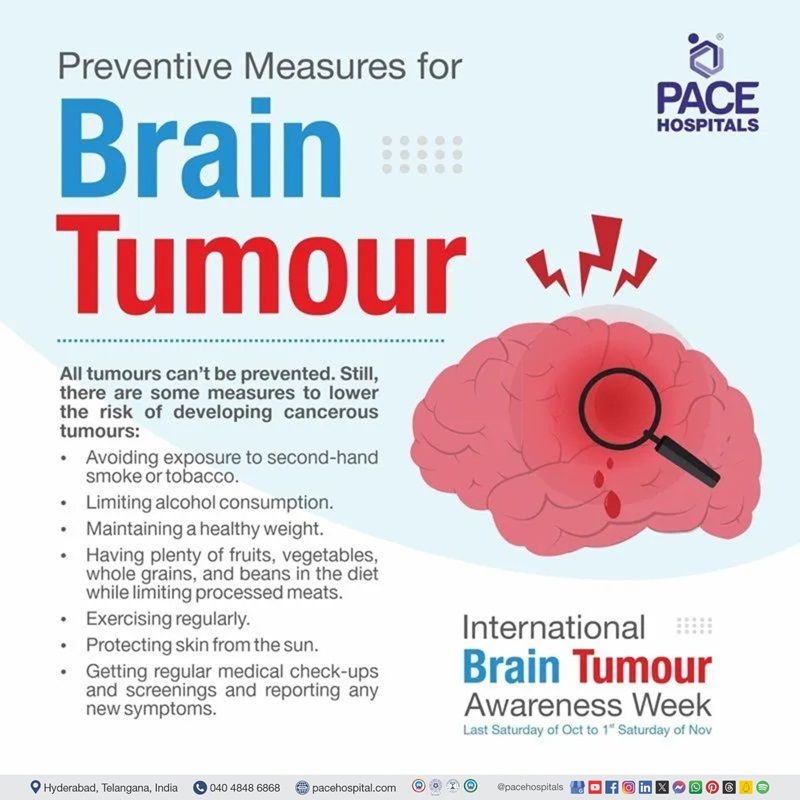
Preventive Measures for Brain Tumour
All tumours can’t be prevented. Still, there are some measures to lower the risk of developing cancerous tumours:
- Avoiding exposure to second-hand smoke or tobacco
- Limiting alcohol consumption
- Maintaining a healthy weight
- Having plenty of fruits, vegetables, whole grains, and beans in the diet while limiting processed meats
- Exercising regularly
- Protecting skin from the sun
- Getting regular medical check-ups and screenings and reporting any new symptoms
Share on
Request an appointment
Fill in the appointment form or call us instantly to book a confirmed appointment with our super specialist at 04048486868

